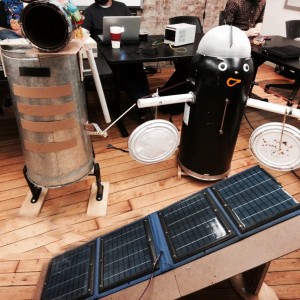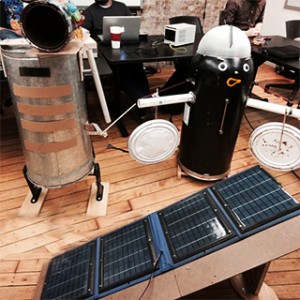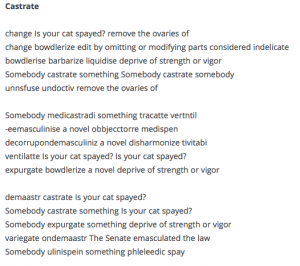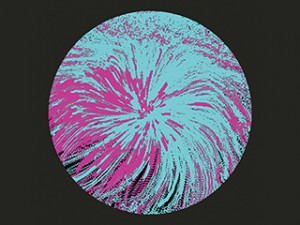Aankit Patel, Amelia Winger-Bearskin, Michael Ricca
Solar Powered Music Making Robots made from items headed for the trash found in the Sub-Basement of TISCH
http://www.inventioninbrooklyn.com/daftjunk/
Description
Sustainable design with electronics can often begin with a conversation about cost, what are my energy costs? How much energy was used to create my materials? How much does it cost in energy and resources to break down my waste? We began from a place of using things that were abundant and not being used on the floor: Trash and Solar Power from the giant panel on the roof of TISCH.
From there we created Daft Junk two solar powered robots, made from trash, who make music powered by the sun. Our audience can control the robots using a control box that simulates distribution of power to each of the robot's component parts. We want to introduce the audience to the idea of a power budget, demonstrating how much can be done even while adhering to strict constraints, but in a fun and playful way.
Classes
Energy




